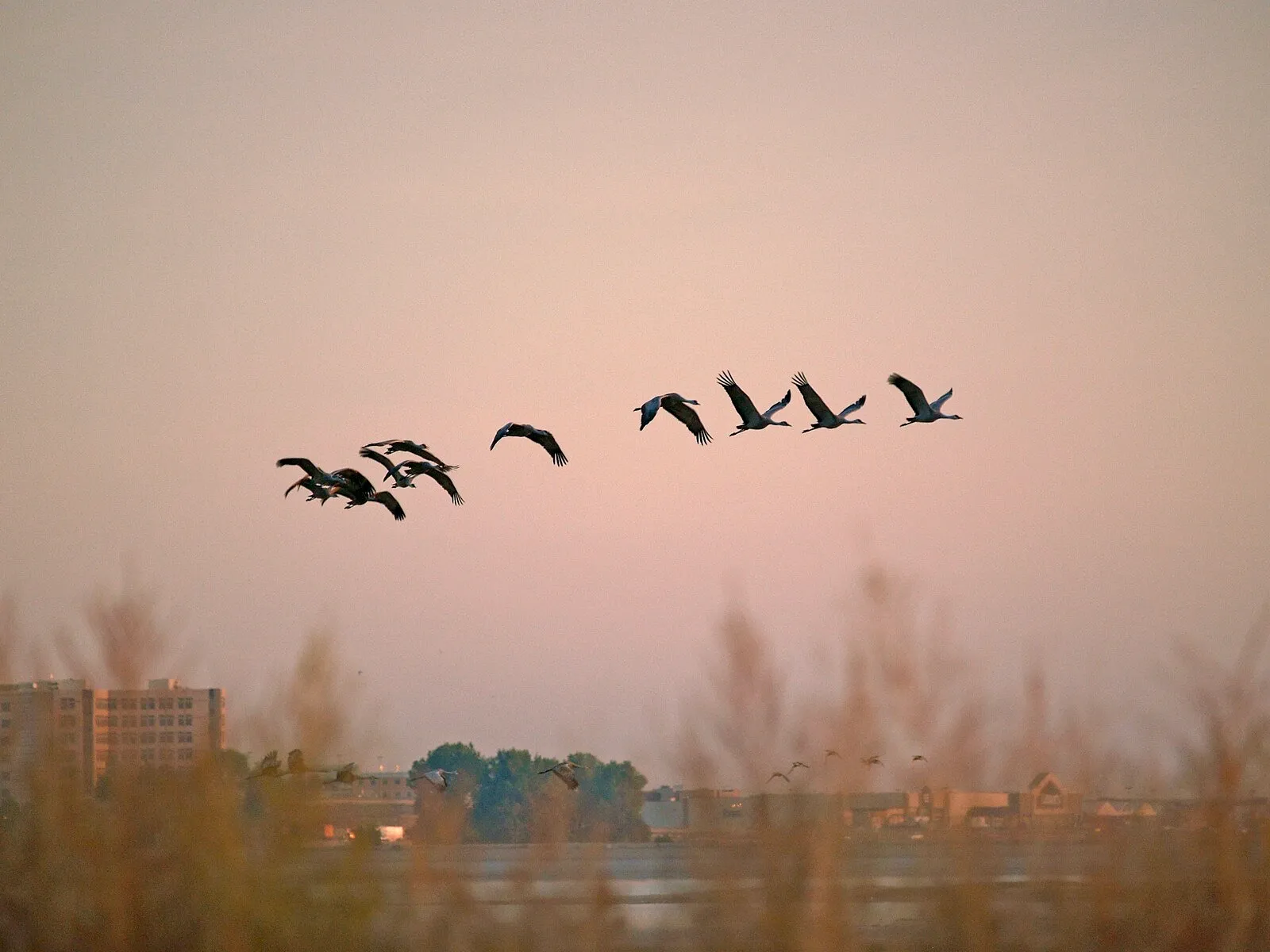Helping Birds Navigate the Skies
The City of Sandy is asking residents to dim their lights this fall to support bird migration. Through its new program, “Go Lights Out for the Fall,” the city hopes to reduce sky glow that can disorient migrating birds and threaten their survival.
Each year, millions of birds — from hummingbirds and warblers to sparrows and geese — migrate across North America, traveling hundreds or even thousands of miles. Most fly under the cover of darkness, navigating with the help of the moon, stars, and the Earth’s magnetic pull. But artificial light from cities can overwhelm the night sky, confusing birds and drawing them into dangerous urban environments.
Peak Migration Window
Sandy’s pledge focuses on the peak migration season, Sept. 19 through Oct. 19, when the greatest number of birds are expected to pass overhead. During this time, residents are encouraged to turn off unnecessary lights and take steps to reduce light pollution around their homes and businesses.
Also Read
According to BirdCast, which tracks bird migration in real time, the skies above Clackamas County are already busy. Between 7:50 p.m. on Friday, Aug. 29, and 6:30 a.m. Saturday, Aug. 30, an estimated 32,700 birds crossed the county.
Simple Steps for Residents
Sandy officials outlined several practical ways community members can participate:
-
Turn off outdoor lights when they are not needed.
-
Aim lights downward and ensure they are properly shielded to reduce glow.
-
Use motion sensors so lights activate only when necessary.
-
Switch to warm bulbs (3,000 Kelvins or lower) when installing LED lighting.
-
Close blinds or curtains at night to prevent indoor light from spilling outside.
By adopting these measures, residents can make their homes safer for birds while also saving energy.
Why It Matters
Artificial light at night is one of the fastest-growing forms of pollution worldwide. For migratory birds, the risks are especially high. Bright urban lights can cause birds to circle endlessly until they are exhausted, collide with buildings, or fall prey to predators. Nationwide, conservation groups estimate that hundreds of millions of birds die each year from collisions and disorientation linked to light pollution.
By pledging to go “lights out,” Sandy joins a growing movement of cities across the U.S. working to make skies safer during peak migration.
A Community Effort
Local leaders say the program is not only about protecting wildlife but also about raising awareness. “This is a simple action we can take that has a direct impact,” officials noted. “When communities work together, we can help ensure that migratory birds reach their destinations safely.”
Residents can learn more and take the pledge online at tinyurl.com/2rhtmmf2.
With fall migration underway, Sandy hopes its skies will be darker — and much safer — for the feathered travelers passing through.












